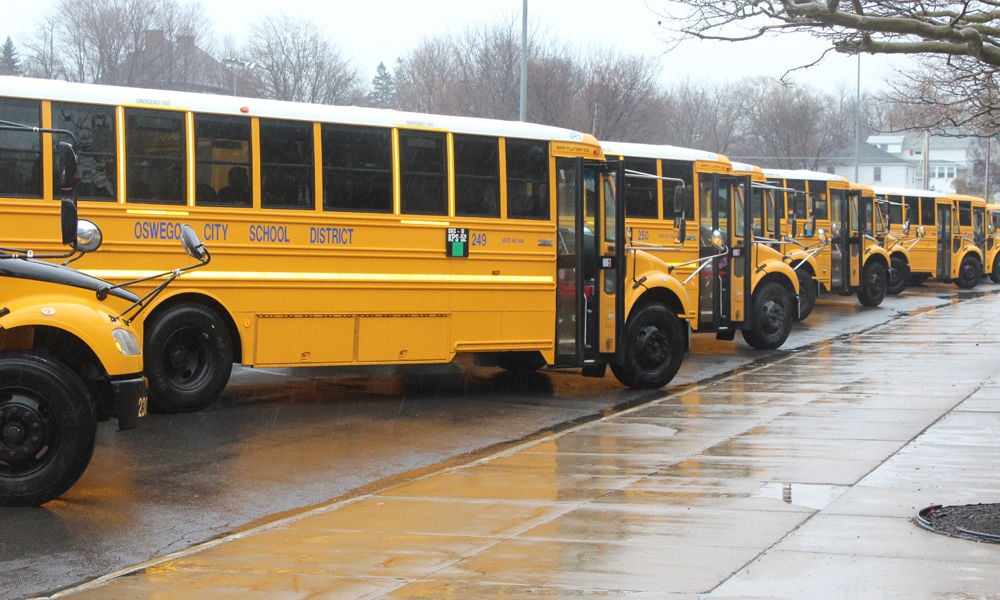
/do0bihdskp9dy.cloudfront.net/07-28-2021/t_7047ae3e64e042d980b3b8642b63601b_name_file_1280x720_2000_v3_1_.jpg)
She said the transportation department can ask but not force parents to transport their children in lieu of the bus. She added that the instructional day cannot be shortened in response to longer bus rides. There is no federal law for the length of ride, though states might have laws on how long a student can be on board. She added that the length of ride for students with disabilities still also needs to be considered and not forgotten. She added that much of the time, transportation decides a course of actio, but the parents are left in the dark. However, she encouraged communicating with parents every day, explaining to them the situation, what transportation is struggling with and being honest. Even though there is a driver shortage, Helfrich noted that IEPs need to be upheld, as to avoid liability.

She said a delay in transportation could cause students to regress, or for students who need consistency, anxiety can result when asked to get back on the school bus.

Parents are suing over lengthy periods in which transportation hasn’t come for their child and no communication was taking place, despite school districts needing the extra time to figure out new routing schedules. And while there is no law on how long a school must take to make these changes, lawsuits are taking place. She added that changes are expected, especially during this unprecedented time with the bus driver shortage. However, she added that it doesn’t mean individuals with such conditions automatically qualify. She reminded attendees that Long-COVID, or the long-term effects of COVID-19 after the virus runs its course, could qualify for a disability under IDEA. They are required to uphold IEP standards once again. She said that while it’s amazing what educators and transportations staff have accomplished amid the ongoing pandemic, schools have lost any leniency from federal regulators and the courts. The IEP might need to be slightly altered from time to time, for instance when COVID-19 largely impacted education and school transportation. She advised having a clear written understanding with the parents, and to be upfront with them if something unexpected happens. However, she said if transportation needs to call a meeting at any other point, they are entitled to do so. Helfrich noted that IEP teams are required to meet at least annually. That practice can differ from state to state, so know the local privacy law, she advised.

She added that in Missouri where she practices law, parents can now record IEP meetings. For instance, is the transportation team and the parent on the same page when it comes to what curb-to-curb bus pickup really means? She added that while there is no legal definition of curb-to-curb, what matters is the understanding of everyone involved in the planning. She noted that during and after the IEP meeting there needs to be a clear expectation of what is accepted by both the parent and the school district team, including transportation. Plus, transportation should have a say in what services can and cannot be accomplished. She noted that while transportation representatives can’t be present in every single IEP meeting, she suggested that transportation teams should still be informed, and communication should be ongoing. Helfrich went on to discuss several legal cases involving Individual Education Programs (IEPs), in which student needs weren’t being meant. This applies to all aspects of school, including transportation and other programs like athletics, clubs, and field trips. Meanwhile, Section 504 of the Rehabilitation Act of 1973 states school districts receiving federal funding can’t discriminate against qualified students with disabilities.
#School bus driver shortage in richland wa free#
It states that children with disabilities receive special education and related services, with transportation at the top of the list, for access to a free and appropriate education so their unique needs are met. IDEA is a federal law first passed in 1975 that all schools must follow. received services under the Individuals with Disabilities and Education Act (IDEA), special education attorney Betsey Helfrich told attendees on Friday of the Transporting Students Disabilities and Special Needs (TSD) Conference. FRISCO, Texas - During the 2019-2020 school year, 14 percent of all public school students in the U.S.


 0 kommentar(er)
0 kommentar(er)
